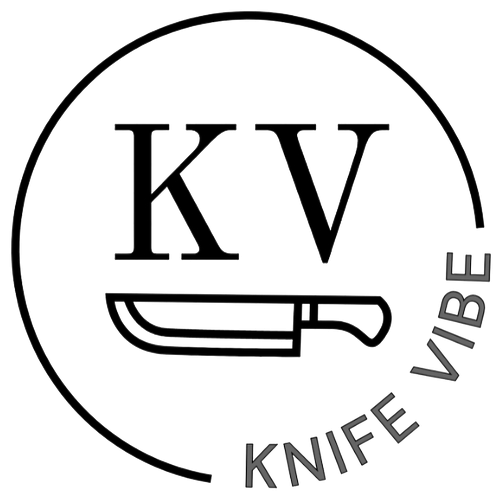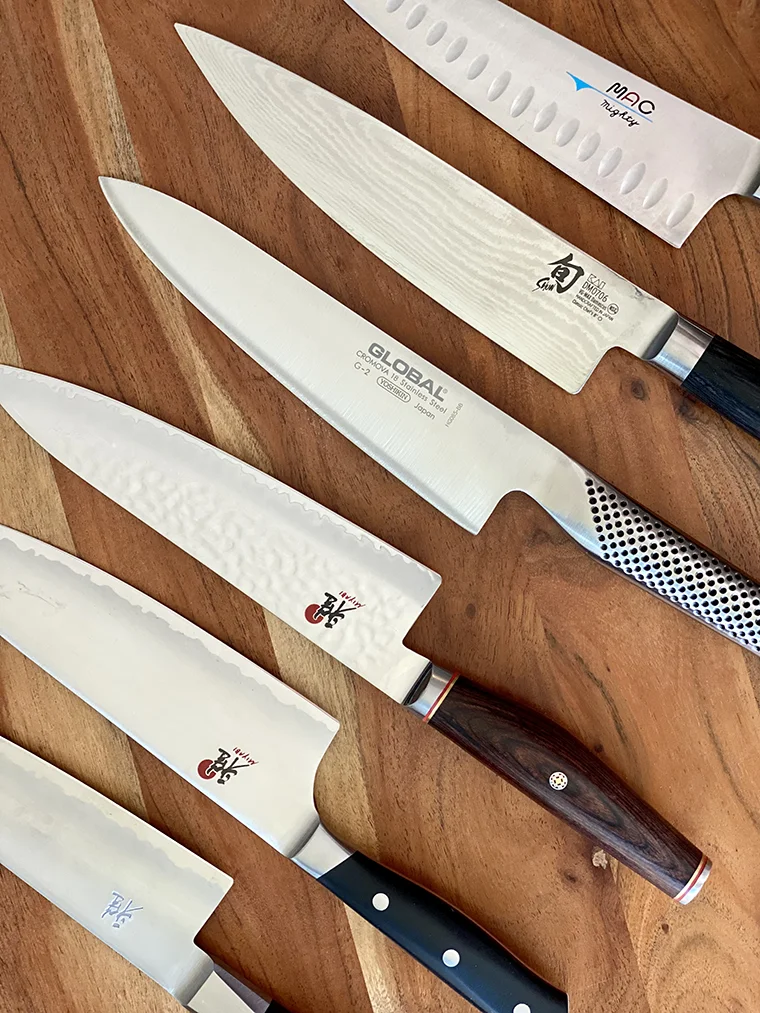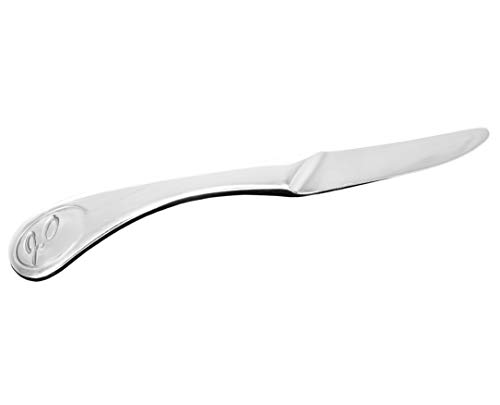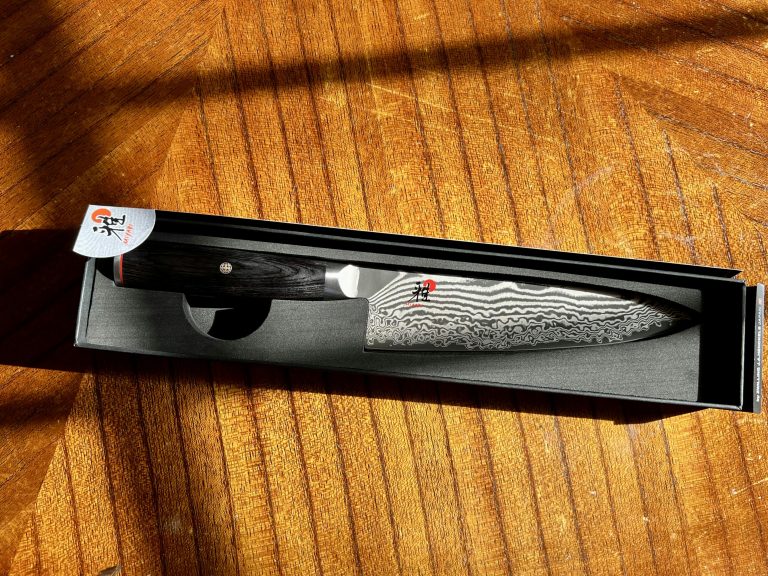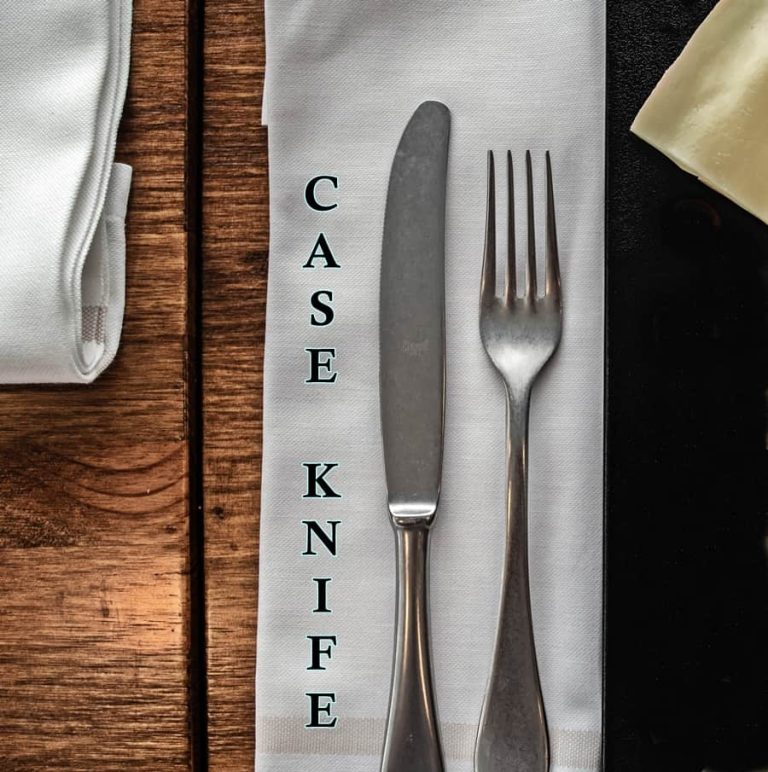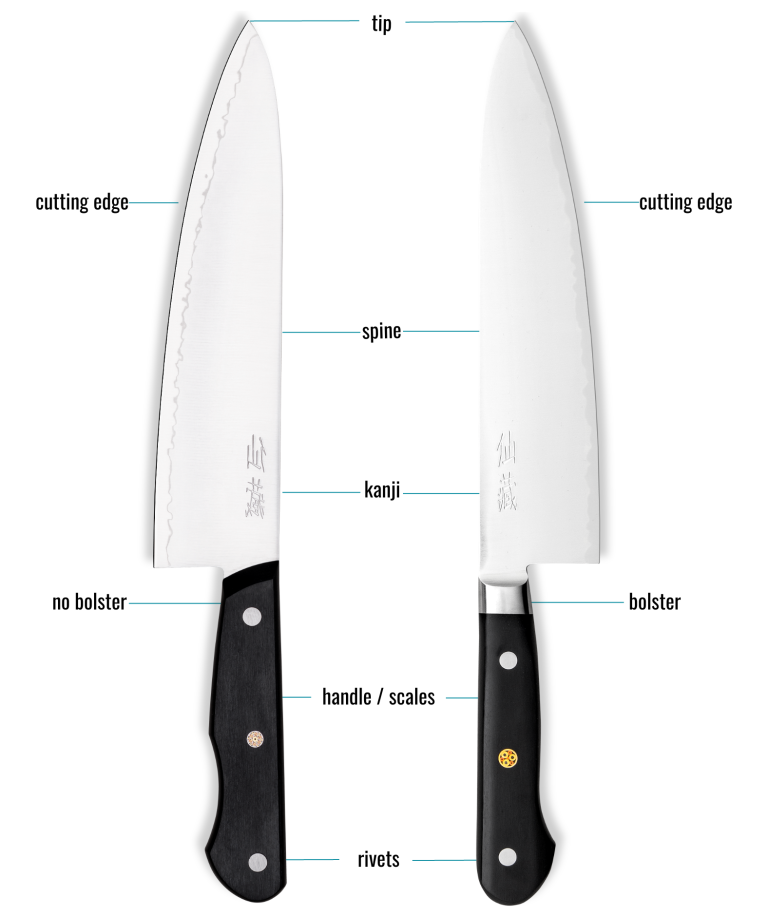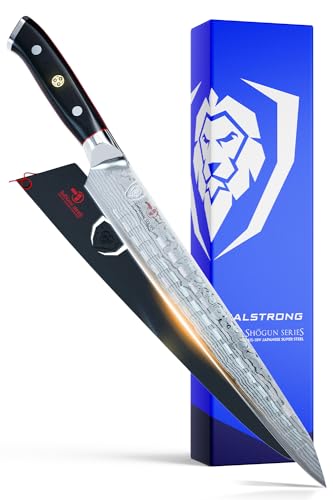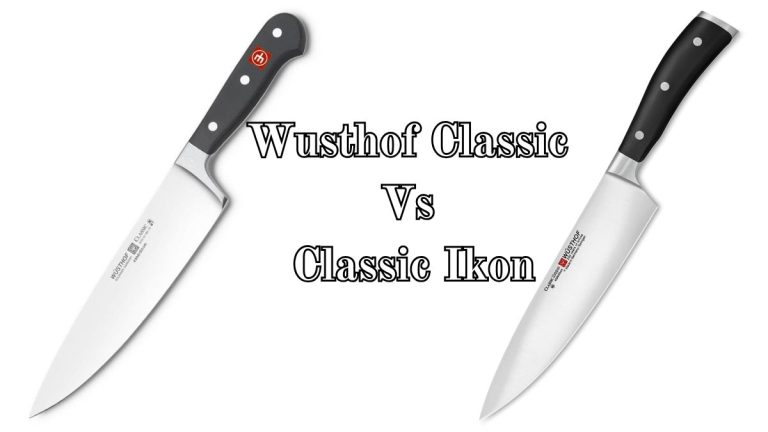Shun Vs Kasumi: Which Japanese Knife Brand Reigns Supreme?
When it comes to high-quality Japanese knives, Shun and Kasumi are top choices. Both offer exceptional craftsmanship and performance.
Comparing Shun and Kasumi knives can help you make an informed choice. Shun knives are known for their sharpness and beautiful design. Kasumi knives are famous for their durability and precision. Each brand has unique features and benefits. Understanding these differences can guide you to the right knife for your needs.
In this blog, we will explore the strengths and weaknesses of Shun and Kasumi. By the end, you will know which brand suits your cooking style best. Let’s dive into the world of Shun and Kasumi knives.
Introduction To Japanese Knives
Japanese knives are renowned worldwide for their precision and craftsmanship. These knives are not just tools. They are a blend of tradition, art, and technology. Over centuries, Japanese knife-making has evolved into a respected craft.
Two brands that stand out are Shun and Kasumi. Both are famous for their quality and performance. But what makes them unique? Let’s dive into the cultural significance and key features of these knives.
Cultural Significance
Japanese knives are deeply rooted in the country’s culture. The art of knife-making dates back to the samurai era. Craftsmen who once forged samurai swords now create these kitchen masterpieces. Each knife reflects a piece of Japanese history and tradition.
Shun and Kasumi knives carry this legacy. They are not just kitchen tools. They symbolize a connection to Japan’s rich heritage. Owning a Japanese knife is like holding a piece of history. It’s an honor and a responsibility.
Key Features
Shun and Kasumi knives are known for their sharpness. They are crafted with precision to offer a razor-sharp edge. This sharpness ensures clean and precise cuts. It makes cooking a more enjoyable experience.
Both brands use high-quality steel. This ensures durability and longevity. Shun knives often feature a Damascus steel pattern. This adds beauty and strength. Kasumi knives are known for their layered construction. This technique enhances their sharpness and durability.
The handles of these knives are also special. Shun knives usually have a comfortable grip. This makes them easy to handle. Kasumi knives often feature a traditional design. This design offers balance and control.
In summary, both Shun and Kasumi knives are remarkable. Their cultural significance and key features set them apart. Choosing between them depends on personal preference. Both brands promise quality and performance.
Credit: www.reddit.com
Overview Of Shun Knives
In the world of high-quality kitchen knives, Shun Knives stand out. These Japanese knives are known for their sharpness, craftsmanship, and beauty. This section delves into the details of Shun Knives.
Brand History
Shun knives are crafted by the Kai Corporation. This company has a history of over 100 years. Kai Corporation started in Seki City, Japan, famous for its blade-making tradition. The name “Shun” means “at the peak of perfection.” This reflects the high standards and quality of their knives.
Popular Models
Shun offers a variety of knife models. Here are some of the most popular ones:
| Model | Features |
|---|---|
| Shun Classic |
|
| Shun Premier |
|
| Shun Sora |
|
These models cater to different needs and preferences.
Overview Of Kasumi Knives
Kasumi knives are renowned for their exceptional craftsmanship and performance in the kitchen. Known for their sharpness and durability, these knives are a favorite among professional chefs and home cooks alike. With a rich history and a variety of popular models, Kasumi knives offer something for everyone who values precision and quality in their culinary tools.
Brand History
Kasumi knives are made by Sumikama Cutlery in Seki, Japan. This region has a long history of blade-making, dating back over 700 years. Sumikama Cutlery combines traditional techniques with modern technology. This ensures that every Kasumi knife meets high standards of quality and performance. The brand is known for its dedication to producing fine kitchen knives that retain their sharpness and offer excellent control.
Popular Models
One popular model is the Kasumi VG-10 Pro. It features a VG-10 steel core and a hammered finish. This design reduces food sticking to the blade. Another favorite is the Kasumi Damascus series. These knives have a 32-layer Damascus steel construction. They are not only sharp but also visually stunning. The Kasumi Titanium series offers a modern twist. These knives have a titanium coating, which makes them lightweight and corrosion-resistant. Each model is designed to meet different needs, ensuring that every cook can find a Kasumi knife that fits their style.

Credit: www.kitchenknifeguru.com
Blade Materials And Construction
Choosing between Shun and Kasumi knives can be challenging. Both offer unique advantages in terms of blade materials and construction. Let’s explore what sets each brand apart.
Shun Blades
Shun blades are renowned for their high-quality VG-MAX steel. This steel is a proprietary formula that provides excellent edge retention. The blades are often clad with layers of stainless steel. This process creates a beautiful Damascus pattern. Shun knives are also known for their sharpness. The blade angles are usually around 16 degrees per side. This makes them incredibly precise for cutting tasks.
Shun also uses a full-tang construction. This means the steel extends through the handle. It offers better balance and durability. The handles are typically made of PakkaWood. This material is water-resistant and durable. Overall, Shun blades are perfect for both professional chefs and home cooks.
Kasumi Blades
Kasumi blades are crafted using VG-10 steel. This high-carbon stainless steel offers excellent edge retention. Kasumi knives often feature a 16-layer Damascus design. This not only adds beauty but also improves strength. The blade angles are usually around 15 degrees per side. This makes them exceptionally sharp and precise.
Kasumi also focuses on a partial-tang construction. This means the steel does not extend through the handle. While this may affect balance, it reduces weight. The handles are often made of resin-impregnated wood. This material is durable and easy to maintain. Kasumi blades are ideal for those who prefer a lighter knife.
Design And Aesthetics
Choosing between Shun and Kasumi knives involves considering many factors, but Design and Aesthetics often play a significant role. Both brands are known for their attention to detail and stunning craftsmanship. Let’s explore their design features.
Shun Design
Shun knives are known for their elegant and sleek design. The blades typically feature a distinctive Damascus pattern, created by layering steel. This not only adds beauty but also enhances blade strength.
The handles of Shun knives are often made from pakka wood, which is a combination of hardwood and resin. This material is durable and water-resistant, ensuring a long lifespan. The handle design is usually ergonomic, providing a comfortable grip for prolonged use.
Shun also incorporates a full tang design, where the blade extends through the handle. This ensures better balance and control while cutting.
Kasumi Design
Kasumi knives are also celebrated for their beautiful and intricate designs. The blades often have a unique Damascus pattern as well, but they are crafted with a different layering technique. This results in a distinctive aesthetic that sets them apart.
The handles of Kasumi knives are typically made from high-quality synthetic materials or natural wood. These materials are selected for their durability and comfort. The handles are also designed to be ergonomically friendly, allowing for a secure and comfortable grip.
Kasumi knives also feature a partial tang design, where the blade extends partially into the handle. This design choice offers good balance and makes the knives lighter overall.
| Feature | Shun | Kasumi |
|---|---|---|
| Blade Pattern | Distinctive Damascus | Unique Damascus |
| Handle Material | Pakka Wood | Synthetic or Natural Wood |
| Tang Design | Full Tang | Partial Tang |
Both Shun and Kasumi offer stunning knives with unique design elements. Your choice will depend on your personal preference and cutting needs.
Performance And Usability
When comparing Shun and Kasumi knives, performance and usability are key aspects. Each brand offers unique features that cater to different needs. Let’s explore their cutting efficiency and comfort and handling.
Cutting Efficiency
Shun knives are known for their sharpness and edge retention. They are crafted using high-quality VG-MAX steel. This steel ensures the knife stays sharp longer.
Kasumi knives use V-Gold No. 10 steel, providing excellent sharpness. The edge is thin, making it ideal for precise cuts.
| Brand | Steel Type | Edge Retention |
|---|---|---|
| Shun | VG-MAX | High |
| Kasumi | V-Gold No. 10 | Medium |
Comfort And Handling
Shun knives feature an ergonomic handle design. They are designed to fit comfortably in the hand. This reduces fatigue during prolonged use.
Kasumi knives have a traditional Japanese handle. These handles provide a firm grip, enhancing control. The handle material is also resistant to moisture.
- Shun: Ergonomic handle, reduced fatigue
- Kasumi: Firm grip, moisture-resistant handle
Both Shun and Kasumi excel in performance and usability. Your choice depends on personal preference and specific needs.
Price And Value
When choosing between Shun and Kasumi knives, price and value play a crucial role. Both brands offer high-quality products, but their costs and long-term value differ. Understanding these differences can help you make an informed decision.
Cost Comparison
Shun knives tend to be more expensive compared to Kasumi knives. The price difference is due to Shun’s use of premium materials and advanced manufacturing techniques. For example, Shun knives often feature a VG-MAX steel core with layers of Damascus cladding.
Kasumi knives, on the other hand, use VG-10 steel and simpler designs. This results in a lower price point. The cost difference between the two brands can be significant, especially for high-end models.
Long-term Investment
While Shun knives are more expensive initially, they offer long-term value. The durability and performance of Shun knives can save you money over time. They require less frequent sharpening and maintenance.
Kasumi knives also provide good value but may need more maintenance. Their simpler construction can lead to more frequent sharpening and possible replacements. Weighing the initial cost against long-term benefits can help you choose the right knife for your needs.
Customer Reviews And Feedback
Understanding the experiences of other customers can help you make a better choice. Reviews and feedback provide insights into the real-world performance of Shun and Kasumi knives. Let’s dive into what customers are saying about these brands.
Shun Reviews
Shun knives are popular among both home cooks and professional chefs. Many users praise the sharpness and durability of these knives. Here are some common points from customer reviews:
- Sharpness: Most users find Shun knives extremely sharp right out of the box. They also retain their edge well.
- Build Quality: Many customers appreciate the high-quality materials and craftsmanship.
- Comfort: The ergonomic handles make these knives comfortable to use for long periods.
- Design: The elegant design and aesthetic appeal are frequently mentioned.
Here is a summary of customer ratings for Shun knives:
| Feature | Rating |
|---|---|
| Sharpness | 4.8/5 |
| Build Quality | 4.7/5 |
| Comfort | 4.6/5 |
| Design | 4.7/5 |
Kasumi Reviews
Kasumi knives are also highly regarded by many users. They are known for their precision and quality. Here are some highlights from customer reviews:
- Precision: Users often comment on the precision cutting capability of Kasumi knives.
- Balance: Many find the balance of these knives to be excellent, making cutting tasks easier.
- Edge Retention: Customers note that the knives hold their edge well over time.
- Appearance: The beautiful design and finish are frequently praised.
Here is a summary of customer ratings for Kasumi knives:
| Feature | Rating |
|---|---|
| Precision | 4.9/5 |
| Balance | 4.8/5 |
| Edge Retention | 4.7/5 |
| Appearance | 4.8/5 |
Conclusion: Shun Vs Kasumi
Choosing the right knife is crucial for any chef. Shun and Kasumi are both excellent brands. They offer unique features. Let’s summarize our findings and reach a final verdict.
Summary Of Findings
| Feature | Shun | Kasumi |
|---|---|---|
| Blade Material | VG-MAX Steel | VG-10 Steel |
| Handle | PakkaWood | Wooden |
| Price Range | $$$ | $$ |
| Durability | High | Moderate |
| Sharpness | Excellent | Good |
Final Verdict
Shun knives are perfect for those who value durability and sharpness. They are made from high-quality VG-MAX steel. The handles are crafted from PakkaWood. This ensures a comfortable grip. Though they are more expensive, they are worth the investment.
Kasumi knives offer good quality at a lower price. They use VG-10 steel which is durable but not as high-end as VG-MAX. The wooden handles provide a traditional feel. They are a great choice for beginners or those on a budget.
Both brands have their pros and cons. Choose based on your needs and budget. Happy cooking!

Credit: www.japanesenaturalstones.com
Frequently Asked Questions
What Are The Main Differences Between Shun And Kasumi Knives?
Shun knives are typically made with VG-MAX steel, known for durability. Kasumi knives often use VG-10 steel, offering sharpness and precision. Both brands offer high-quality Japanese craftsmanship, but they have unique design features and blade construction techniques.
Are Shun Knives Better Than Kasumi Knives?
Neither is definitively better; it depends on your needs. Shun knives are known for their durability and balance. Kasumi knives are praised for their sharpness and lightweight design. Choose based on your cooking style.
How Should I Maintain Shun And Kasumi Knives?
Both knives require careful maintenance. Use a honing rod regularly, hand wash with mild soap, and dry immediately. Avoid dishwashers and harsh abrasives. Sharpen with a whetstone for best results.
Which Knives Are More Suitable For Professional Chefs?
Both Shun and Kasumi knives are suitable for professional chefs. Shun offers excellent balance and durability, ideal for daily use. Kasumi knives provide sharpness and precision, perfect for intricate tasks. Preference depends on the chef’s technique.
Conclusion
Choosing between Shun and Kasumi depends on your personal needs. Both offer excellent quality. Shun knives are known for their sharpness and durability. Kasumi knives excel in craftsmanship and precision. Consider your cooking style and budget. Both brands provide reliable options for home cooks and professionals.
Your choice will enhance your kitchen experience. Enjoy the process of selecting the right knife. Happy cooking!
